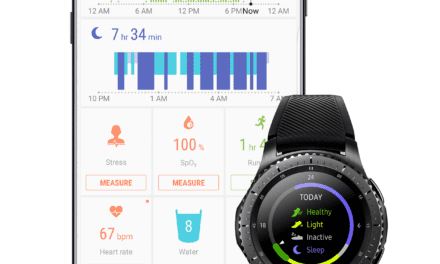Fitbit unveiled the Fitbit Charge 3, which includes Sleep Score beta “to help users better understand sleep quality” and a relative SpO2 sensor that the company says has the potential to track sleep disturbances that could indicate health issues like sleep apnea.
“With Charge 3, we are building on the success of our best-selling Charge franchise and delivering our most innovative tracker, offering an extremely slim, comfortable, and premium design, along with the advanced health and fitness features our users want. Charge 3 gives existing users a compelling reason to upgrade, while also allowing us to reach new users who want a sleeker, more affordable wearable in a tracker form factor,” says James Park, co-founder and CEO of Fitbit, in a release. “Our commitment to consumer choice and ability to meet the demand of millions of users by offering a range of products, from trackers to smartwatches, will enable us to expand our share of the overall wearables market.”
Fitbit has collected 9 years of sleep data and also introduced “Sleep Stages and Sleep Insights” based on heart rate variability, which it says gives users “an even more in-depth understanding of sleep quality.”
“Fitbit continues to harness its data to give users actionable insights into their health and wellness. For example, we’ve found that 1 in 4 people get significantly more sleep on weekends than weekdays, which implies they are trying to make up for reduced sleep during the week. We can deliver insights to these users through the Fitbit app to make them aware of how this behavior affects their well-being and suggest how to set up a sleep schedule,” says Shelten Yuen, VP of research at Fitbit. “In the future, we hope to provide more guidance to our users to reduce the risk of disease so they can become the healthiest versions of themselves.”
Fitbit now announces a new Sleep Score beta from Fitbit Labs that will be available to Fitbit users later this year. Using key metrics tracked by any Fitbit device with 24/7 PurePulse heart rate tracking, Sleep Score will “provide a nightly score to help give you a more complete picture of your overall sleep quality and what factors affect it.”
In addition, for devices with a relative SpO2 sensor, including Charge 3, Fitbit Ionic, and Fitbit Versa, Fitbit will test the tracking of breathing disruptions, which can be indicators of health issues such as allergies, asthma, or sleep apnea.
“With the Fitbit Labs Sleep Score beta, we’re pioneering an intuitive way for people to understand their sleep. It’s an example of how we are continually evolving the health experience for our users,” Yuen says.
Separately, Fitbit will continue to develop and clinically validate FDA regulated software as a medical device for various health conditions including sleep apnea and atrial fibrillation. Fitbit is one of nine companies in the FDA’s digital health software precertification pilot program, which is designed to streamline the approval process for software as a medical device.





![Clinically Validated Sleep Wearables Are Coming [Editor’s Message]](https://sleepreviewmag.com/wp-content/uploads/2020/03/clinically-validated-wearables-440x264.jpg)
Well now people will understand more the importance of sleep!